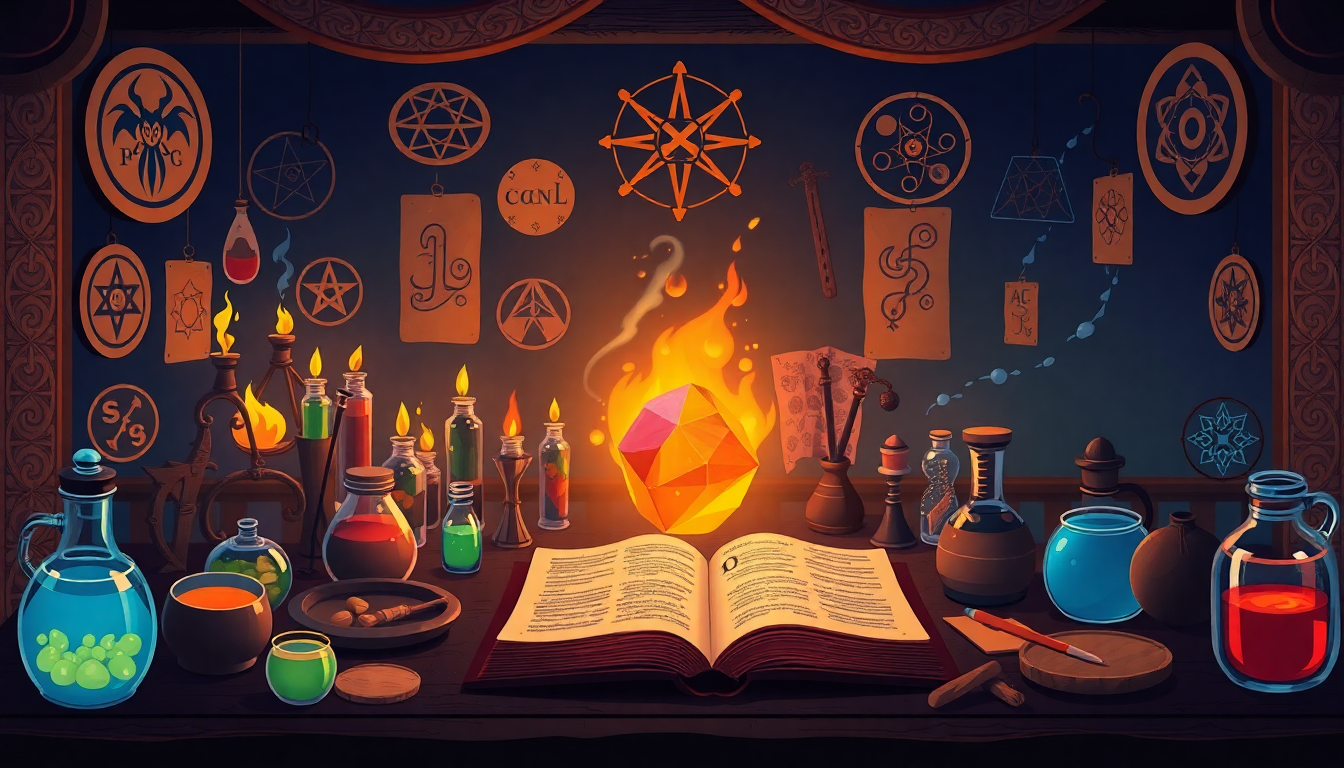The Mysteries of Alchemy
Alchemy is often seen as the precursor to modern chemistry, but it is also steeped in mysticism, philosophy, and legend. It is an ancient practice shrouded in the quest to transform base metals into noble ones, such as turning lead into gold. Central to alchemy is the infamous Philosopher’s Stone, an elusive substance said to grant immortality and transmute any metal into pure gold. The allure of this magical stone has captivated minds and cultures for centuries, merging the realms of science, spirituality, and folklore.
The Historical Context
Alchemy dates back to ancient Egypt and Mesopotamia, but it truly flourished during the medieval period in Europe, the Middle East, and Asia. Alchemists drew from a combination of Aristotle’s theories, Hermetic principles, and mystical traditions. The Philosopher’s Stone was seen as the pinnacle of alchemical achievement, embodying the ultimate transformation and enlightenment.
- Egyptian Roots: The famous Emerald Tablet, attributed to the mythical figure Hermes Trismegistus, is a foundational text that influenced alchemical thought.
- Islamic Influence: In medieval Islamic culture, scholars like Jabir ibn Hayyan expanded on alchemical practices, formalizing processes that were precursors to modern chemistry.
- European Renaissance: Alchemy gained significant traction during the Renaissance, where figures like Paracelsus (Theophrastus von Hohenheim) sought to blend science, medicine, and alchemical wisdom.
The Philosopher’s Stone: Legends and Beliefs
The Philosopher’s Stone isn’t just a plot device in popular books and movies like “Harry Potter”; it has a rich tapestry of stories surrounding it. Various cultures have depicted it in different ways, often as a brightly colored crystal or a powder. The stone was thought to be capable of bestowing eternal life by producing the Elixir of Life.
“The Philosopher’s Stone is to gold as gold is to silver, an agent of perfection and transformation.”
Famous Alchemists and Their Quests
The search for the Philosopher’s Stone attracted many renowned scholars and mystics:
- Nicholas Flamel: Believed by many to have discovered the stone and achieved immortality. While historical records about his life are sparse, legends suggest he used the stone’s powers for philanthropy and personal enrichment.
- Isaac Newton: Better known for his contributions to physics and mathematics, Newton also dabbled in alchemy. His manuscripts reveal extensive efforts to uncover the secrets of transmutation and the Philosopher’s Stone.
- Count of St. Germain: A mysterious and eccentric figure known for his claims of immortality and alchemical prowess. Though historical evidence is inconclusive, his story adds to the rich legend of the Stone.
Scientific Underpinnings and Misconceptions
While the mystical aspects of alchemy might seem far-fetched, alchemists made significant contributions to the scientific method. They conducted experiments, recorded observations, and theorized about matter and transformation. These methods laid the groundwork for modern chemistry.
Transmutation: The core idea of transforming one element into another, though unfeasible by alchemical means, is possible through nuclear reactions. Modern science can achieve transmutation, but it’s a far cry from medieval alchemical techniques.
Philosophy and Symbolism: Alchemy wasn’t just about physical transformation but also spiritual. Many alchemists viewed the Philosopher’s Stone as a metaphor for personal enlightenment and transformation. It represented the alchemist’s journey towards purity, wisdom, and unity with the divine.
Alchemy in Popular Culture
Alchemy continues to inspire literature, movies, and art. The Philosopher’s Stone has appeared in countless works, symbolizing the human quest for perfection and the unknown.
- Harry Potter: J.K. Rowling introduces Nicholas Flamel and the Philosopher’s Stone, weaving alchemical lore into a modern fantasy narrative.
- Fullmetal Alchemist: This popular Japanese manga and anime series delves into themes of alchemy, transformation, and the consequences of seeking ultimate power.
- Elixirs and Epics: Many historical novels and tales draw on alchemical themes, reflecting humanity’s enduring fascination with transformation and enlightenment.
The Enduring Legacy
While the scientific community has long since moved beyond many alchemical theories, the philosophical and symbolic elements of alchemy continue to resonate. The quest for the Philosopher’s Stone encapsulates humanity’s insatiable curiosity, its desire for transformation, and its endless pursuit of knowledge and perfection.
Alchemy’s blend of science, philosophy, and mysticism provides a unique lens through which to view our history and our aspirations. It reminds us that the journey for knowledge often encompasses more than just empirical facts—it includes the search for meaning, transformation, and enlightenment in all aspects of life.
